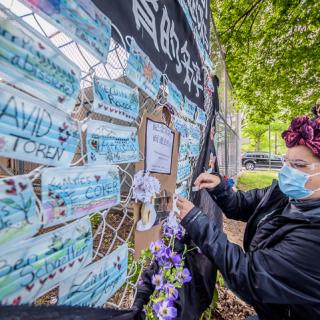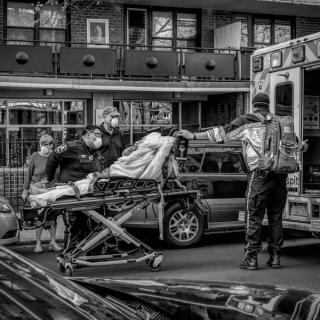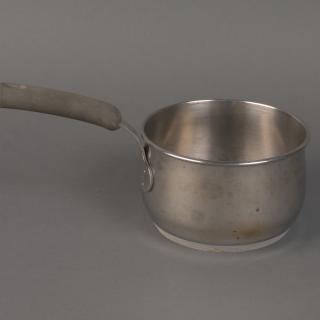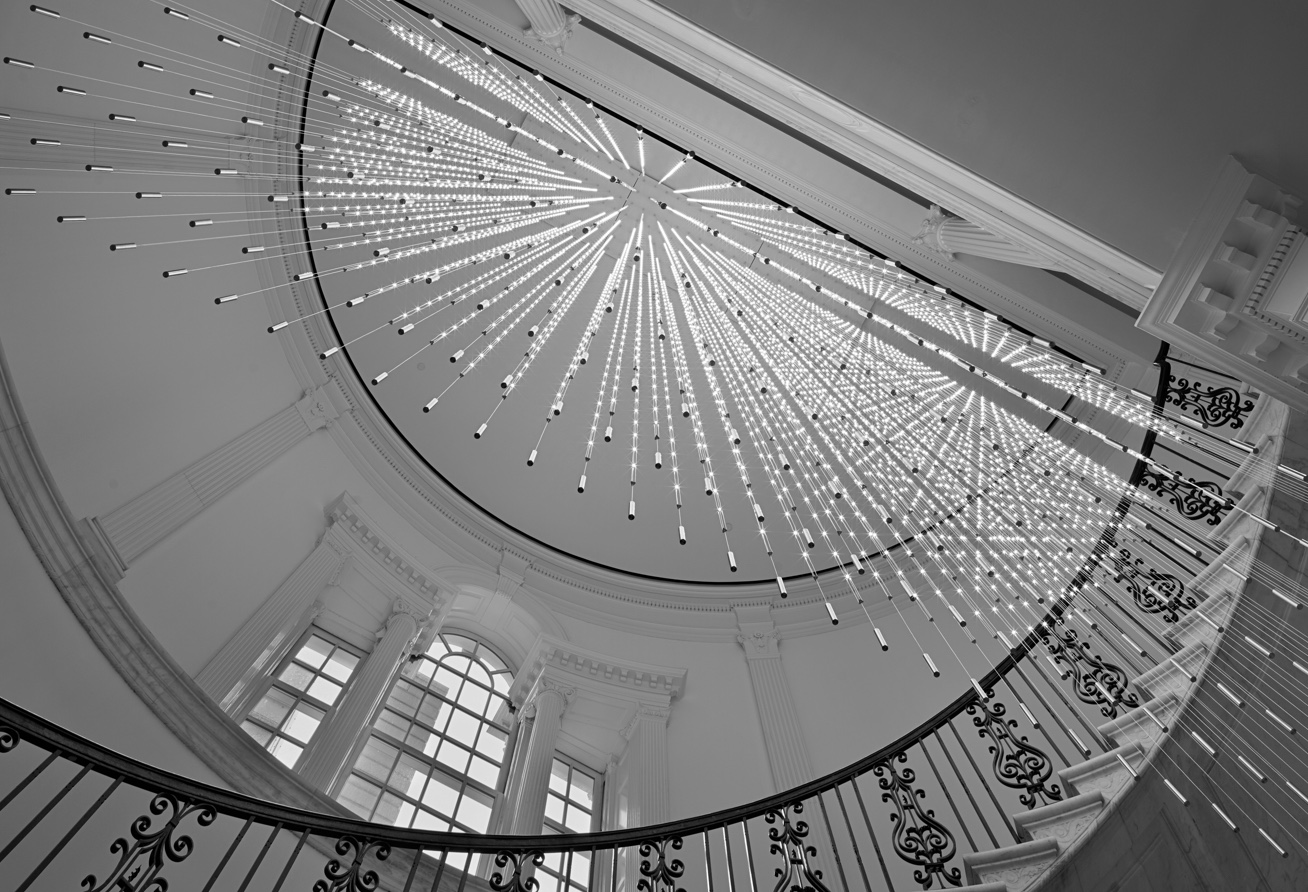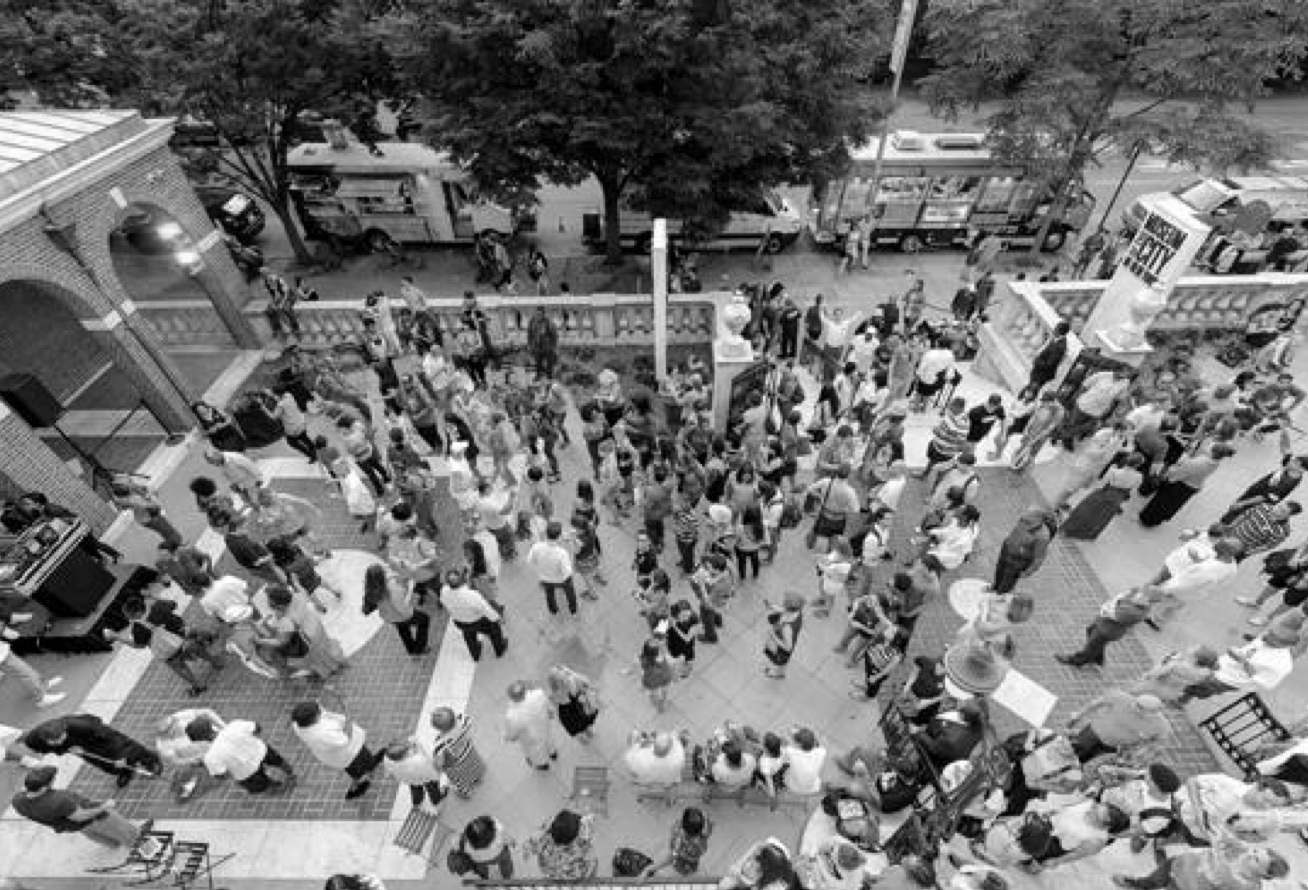The COVID City
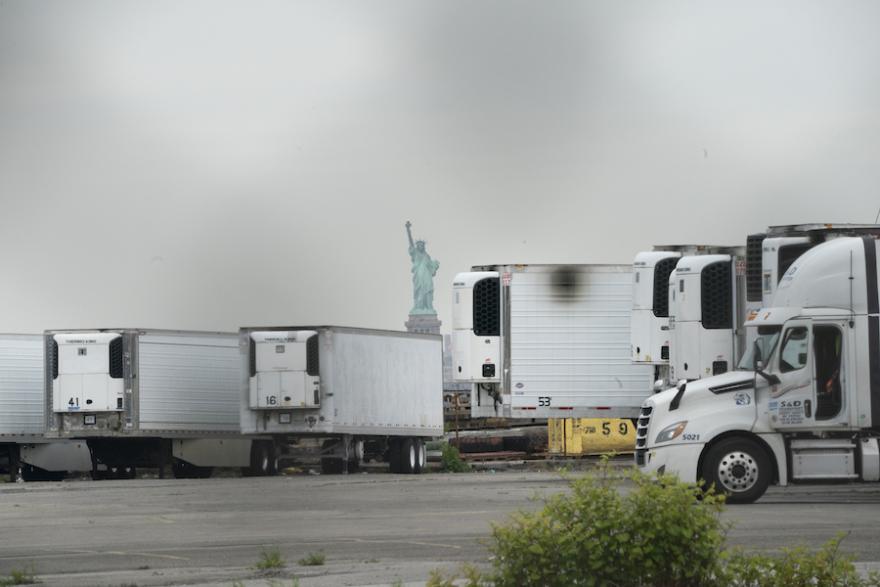
The COVID City
The cityscape in New York was dramatically transformed by the pandemic. Photographers captured empty streets, unfamiliar signage, and New Yorkers navigating daily life in ways that sometimes seemed unrecognizable.
Explore the exhibition—return to all themes or return to the online exhibition.
Toilet Paper Hoarder, Manhattan, NYC
Ruben Natal-San Miguel
2020
Courtesy of the photographer
"Signs start appearing with messages that wouldn't have made sense a few months ago."
Matthijs Noome
April 18, 2020
Courtesy of the photographer
“Help flatten the curve” became a rallying cry of public health professionals during the pandemic, as they called upon the public to wear masks, socially distance, and stay home in order to prevent cases peaking too precipitously and overwhelming the health care system.
The photographer writes, “Departing from my typical genre (nature and wildlife photography), I ventured out during the COVID-19 lockdown to document the city's empty streets, vacant landmarks, and drastically changed public life. I took this photo on Seventh Avenue, between 34th and 35th Streets, on April 18, 2020. The signs overhead caught my attention. They seemed to have been there all along, but of course, they weren't.
“A message like that wouldn't have made sense a few months prior. In the spring and summer of 2020, more messages like these were popping up all over town: in storefronts and on billboards, murals, stickers, and graffiti—all urging New Yorkers to do their part in fighting the spread of COVID-19.”
[“Be Well” on the marquee of the Apollo Theater]
Ruben Natal-San Miguel
Undated
Courtesy of the photographer
[Praying outside St. Patrick's Cathedral, which was closed due to COVID]
John Sheehy
March 22, 2020
Courtesy of the photographer
The photographer recalls, “On March 22, the epidemic was rapidly spinning out of control and a statewide ‘stay at home’ order went into effect that day. The city reported 2,832 new COVID cases and many more were sick, but could not be tested. Thousands were hospitalized and deaths were rising rapidly. Offices, schools, and ‘non-essential’ businesses were all closed. Midtown streets were deserted. Millions of Americans had lost their jobs and financial markets had crashed. In that moment of overwhelming fear and confusion, the comfort and refuge of the church premises were shut off.
“The man in the picture is a tiny presence alone in the enormous physical and spiritual space of the church entryway. He may have been there for a very personal reason, but in the image, he represents all of us, humbled by the developing catastrophe.
“Many months later we are still living with COVID, but streets are busy, churches are open, and fear is largely gone. The photo captures a moment and mood which have fortunately passed.
"Day 50: summer distancing..."
Russ Rowland
May 4, 2020
Courtesy of the photographer
The photographer recalls, “After weeks of only going into Central Park to keep sane, I decided to walk south (I live Upper West) into Midtown and below with a friend just to see what was open and what was going on. I was amazed by how few people, even on a beautiful day, were in the streets. It was a people-less vision of NYC I've only seen during snowstorms in the middle of the night. It was strange, and kind of a delight.”
“I saw a lone figure suddenly crossing in front of the very pressing and apropos question.”
[The Statue of Liberty pictured behind refrigeration trucks serving as a temporary morgue for victims of COVID]
Bryan Smith
May 6, 2020
Courtesy of the photographer
This photograph was taken from Industry City, Brooklyn. The photographer writes, “The Statue of Liberty is pictured beyond where refrigerated morgue trailers at the South Brooklyn Marine Terminal were holding the bodies of people who had died of COVID-19. The temporary emergency morgue was set up in April until funeral homes or crematories could accept the bodies.
“The Statue of Liberty is a symbol of America and to see trailers of bodies at the base is an image of a country failing at the most basic responsibility: to keep our citizens safe. Knowing now what we didn't know then, this photo speaks more to the failures of the Trump administration in having a cohesive national plan in place to address the virus. At the time I hoped that this image would be a notice to Americans to take this virus seriously and follow facts and science, to wear a mask out of respect for the first responders and fellow Americans that are putting themselves in harm's way for us.”
View More Themes
Facing the Virus
In a climate akin to wartime, New Yorkers came together—often virtually—to remember, to mourn, and to heal.
Healthcare Crisis
As NYC faced down the virus, healthcare workers met the challenge with determination and a spirit of innovation.
Clapping
Clapping and banging pots at 7 p.m. became a way to thank essential workers for their service and sacrifices.






